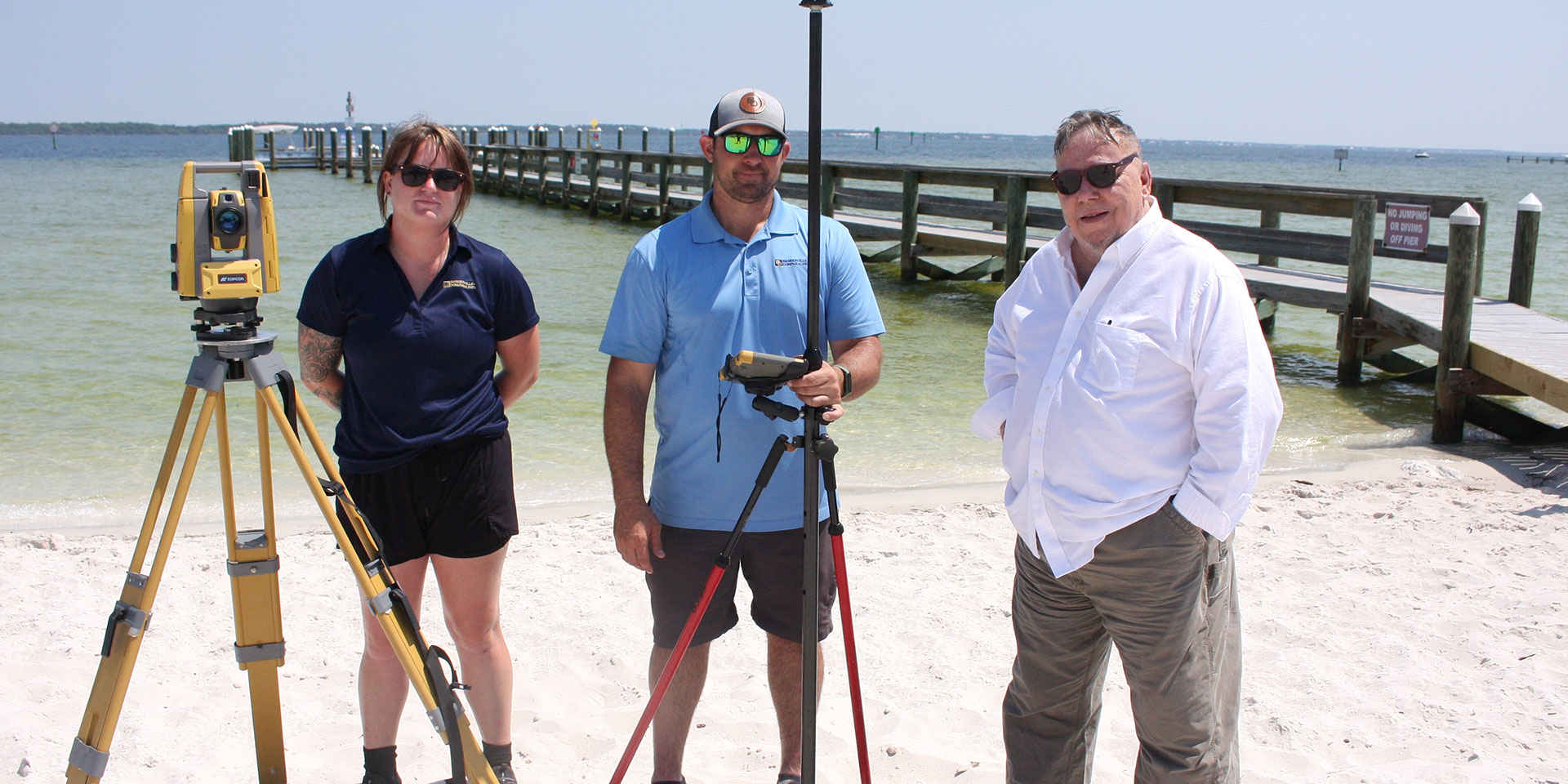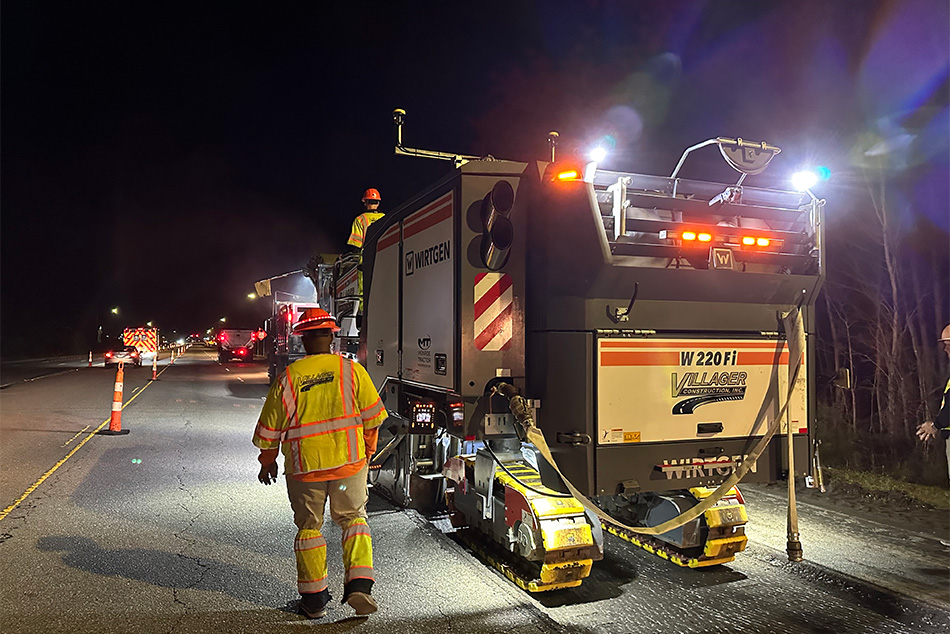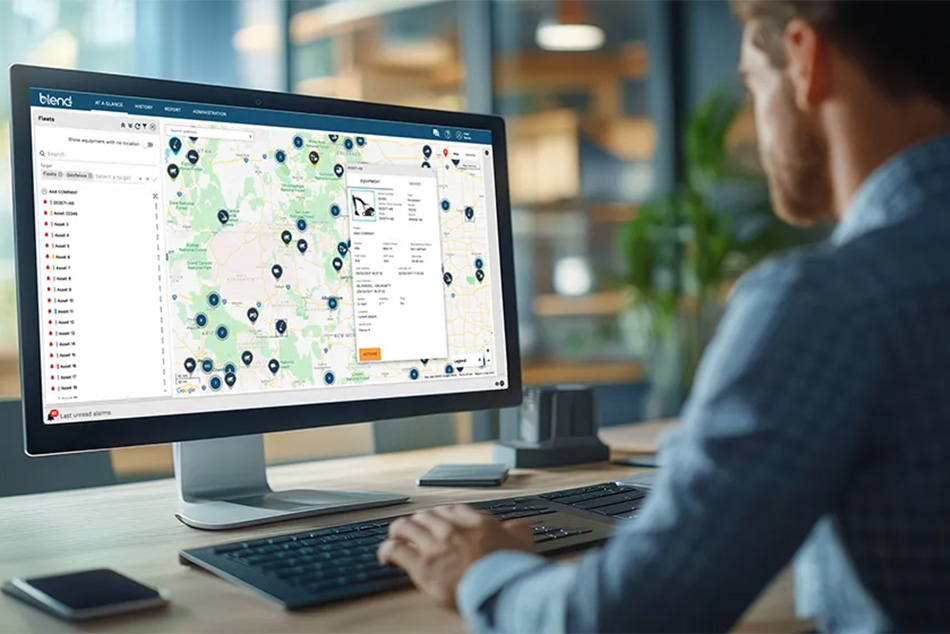Upgrading total stations proves a transformative force for Pensacola, Florida engineering firm.
With the introduction of the total station more than a half-century ago, the surveyor’s dream of capturing distance and angle measurements using a single instrument was realized. Gone (for the most part) was the need for stringline, tape measure, and the lengthy processes they demanded. The survey world would have to wait another two decades before that technology was further improved upon via the robotic total station, which, as the name implies, could remotely record measurements from a distance. It also improved survey efficiencies, making the long-anticipated dream of a one-person crew a reality. For Baskerville-Donovan, Inc., the impact of robotics on their operation has brought all that and more. Since embracing robotic total station technology, the Pensacola, Florida-based multi-disciplined engineering firm has seen a huge uptick in speed and efficiency throughout the broad range of projects they tackle. Technology: just when you think it can’t get any better . . . it does.
Almost a Century
Founded 95 years ago, Baskerville-Donovan, Inc. (BDI) is one of the larger, more in-demand engineering firms serving the Florida panhandle and southeastern Alabama. While the company specializes in local government consulting — with a particular expertise in wastewater treatment plant projects — it heads up engineering for everything from construction of breakwater structures and iconic fishing piers to sitework design for a university football field. According to Robert Scott Mills, BDI’s vice president and surveying market director, its survey crews play a critical role in virtually every project the company undertakes.
“Early on in the company’s existence, we would generally subcontract out our survey work,” he said. “However, management quickly realized what a key role it played in all our projects and brought that function in-house. Between our Pensacola headquarters and offices in Panama City, Tallahassee, and Mobile, we do about $12 million in business each year — a lot of which is generated by survey demands. So our crews need to be productive and efficient — exactly what the robotics provide.”
While BDI had long embraced total stations for the benefits they provide, their need to further improve the operation was evident by 2015 when, working with Altoona, Florida-based Lengemann Corp., their regional Topcon dealer, they purchased their first two GT-603 robotic solutions. Based on that performance and the support from Lengemann, they haven’t looked back since.
“Roger Wheeler, our Lengemann rep is always there when we need him,” said Jeff Gallagher, a BDI survey party chief. “If we can’t figure something out, or have a problem, he’s always available for a call. If he can’t handle it, he’ll point us towards someone who can. That was important when we transitioned to robotics and it continues to be today.”
Matter of Preference
When pressed for the overriding benefit robotic technology brings to their worksite, the three BDI colleagues interviewed for this story had different but equally compelling opinions. For Mills, it has always been about efficiency — the opportunity to maximize the potential of every person on the survey crew. For Taylor Brown, also one of BDI’s survey party chiefs, it is the ability to get jobs like topo surveys, a big part of BDI’s business, done quicker and with fewer headaches. For Gallagher, it is all of that, coupled with an easy-to-use interface.
“I really like the MAGNET Field software that is the brains behind the robotic solution,” he said. “When I first started learning it, finding my way through it was a snap — it is very intuitive, which is great for getting your feet wet. We can easily navigate to what we need — without having to dig deep into submenus. There was a lot of thought put into the software and we appreciate it almost every day.”
Individual reasons aside, BDI’s robotic totals stations are helping reshape the way the company does business. The instruments, which are markedly lighter than previous models, feature UltraSonic direct-drive motors that provide extremely smooth, fast and accurate tracking. Add in the ability to be easily upgraded to a hybrid positioning system and BDI’s embrace of the technology is easily understood.

















